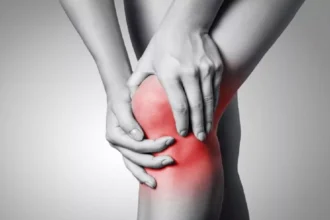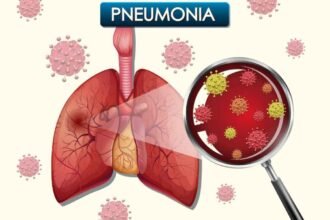Girls and women have to go through the tension of periods every month. The tension that the first period will come on time is followed by the fear of pain during it. In this condition, if the menstrual period lasting for 4-5 days does not stop even after a week, the bleeding and pain increase greatly, life is in danger. The body becomes weak due to continuous bleeding.
NCBI report shows that about 20 percent of women in the country are victims of this problem. According to a report by the health journal IJRCOG, 65 percent of girls under the age of 18 face heavy bleeding during periods. The reason for this can be from infection in private parts to many serious diseases.
Empower Your Flow, Safely and Naturally
Top23News
Menorrhagia – Bleeding more than 5 teaspoons during periods.
Gynecologist Dr. Nanavati Max Super Specialty Hospital, Mumbai. Suruchi Desai says that periods usually come for 4 to 7 days. During this period, 20 to 40 ml of blood is released from the body. If the bleeding does not stop even after a week and more than 80 ml i.e. 5-6 teaspoons of blood is lost, the term ‘heavy periods’ is used for them.
- Advertisement -

Excessive bleeding during periods is also harmful
Dr. Max Healthcare Senior Consultant, New Delhi. According to Kanika Batra Modi, during ‘heavy periods’ there is sometimes so much bleeding that a woman has to change sanitary napkins and tampons within an hour. Even at night I often open my eyes and have to get up and change the napkin. Blood clots are also often seen during this period. Excessive bleeding during periods is also harmful
Gynecology Consultant Dr. Kokilaben Dhirubhai Ambani Hospital, Mumbai. Neha Abhijit Pawar says that in medical science it is called ‘Menorrhagia’. Excessive bleeding causes problems like weakness, dizziness and anemia in women. It negatively affects their physical, mental and emotional health.
Excessive bleeding during periods is a sign of cancer, liver and kidney diseases
Dr. Neha says that a person may struggle with heavy periods due to certain diseases and problems related to internal organs. Sometimes due to an intrauterine device like the Copper-T, periods continue to come for more days. In some cases the exact cause is not known.
In addition, certain medical conditions also increase the risk of heavy periods:
Polyps: Mushroom-like growths in the uterus, intestines, and anus.
Adenomyosis: Endometrial tissue grows in the wall of the uterus. There is severe pain during intercourse.
Endometriosis: In this, endometrial tissue begins to grow outside the uterus into the fallopian tubes and ovaries.
Pelvic Inflammatory Disease: An infection of the reproductive organs caused by diseases such as chlamydia and gonorrhea.
Coagulopathy: In this medical condition, the blood does not clot quickly and bleeding continues.
Cancer: Uterine, ovarian and cervical cancers can also cause excessive bleeding.
Medications: Chemotherapy and medications given to prevent blood clotting can also cause heavy bleeding.

The body lacks blood and oxygen
Heavy bleeding during periods has a very bad effect on women’s health. Excessive blood loss leads to anemia and not eating nutrient-rich foods increases the risk of anemia. He always feels tired, weak and restless.
Difficulties in traveling and the constant worry of changing pads make them prone to stress. They become susceptible to depression. If you face this problem for a long time, the oxygen level in the body may also decrease. Suffocation begins. A person faces many serious health problems. Excessive bleeding during periods is also harmful
The risk increases in the beginning and last days of menstruation
Dr. According to Kanika, teenagers are at higher risk of ‘heavy periods’ in the early days of menstruation and during menopause. Obesity also increases its risk. A family history of bleeding disorders, polycystic ovary syndrome, and thyroid disorders also increases the risk of excessive bleeding during bleeding. This problem is more common in the age group of 40 to 50 years.
The disease was discovered through ultrasound and blood testing
Gynecologists diagnose menorrhagia and its cause through pelvic ultrasound, transvaginal ultrasound, Pap smear, hysteroscopy, and blood tests to check for infection in the private parts.
It is difficult for girls and women at home to estimate how many ml of blood flow during periods. Therefore, they are told that if there are blood clots during periods, need to change pads every two hours, bleeding for more than 7 days, constant pain, do not ignore them and consult a doctor immediately.

A healthy lifestyle provides relief, eliminates risks
For heavy periods, drugs like tranexamic acid are given, so that the bleeding can be stopped immediately. Doctors also treat this problem with hormone therapy and birth control pills. By treating fibroids without surgery, one can get relief from excessive bleeding during periods. Doctors also prescribe iron supplements and multivitamins to prevent anemia.
Some diseases that cause period problems can also be treated with surgery. Polypectomy is done for polyps and myomectomy for fibroids. If the family is complete, the uterus can also be removed. This operation is generally safe.
Dr. However, excessive bleeding during surgery can lead to infection and side effects of anesthesia, says Kanika. But, these days with new techniques like robotic surgery, such risks are reduced to a great extent and recovery is also quick.
Beans, raisins and green vegetables will give you energy
Adopt a healthy diet. Eat fresh seasonal fruits. Include iron rich foods in your diet. Turmeric milk, green leafy vegetables, pulses, apricots, beans and raisins will give strength to the body. Herbs like ashwagandha, barberry, rosemary and green tea are also beneficial in this problem.
During periods, increase fluid intake and drink enough water to avoid dehydration. Avoid eating hot food during this period. Avoid soy, red meat as well as alcohol, cigarettes and drinking too much tea and coffee. If there is heavy bleeding every time during periods, after consulting a doctor, you can take vitamin E before the onset of periods.













